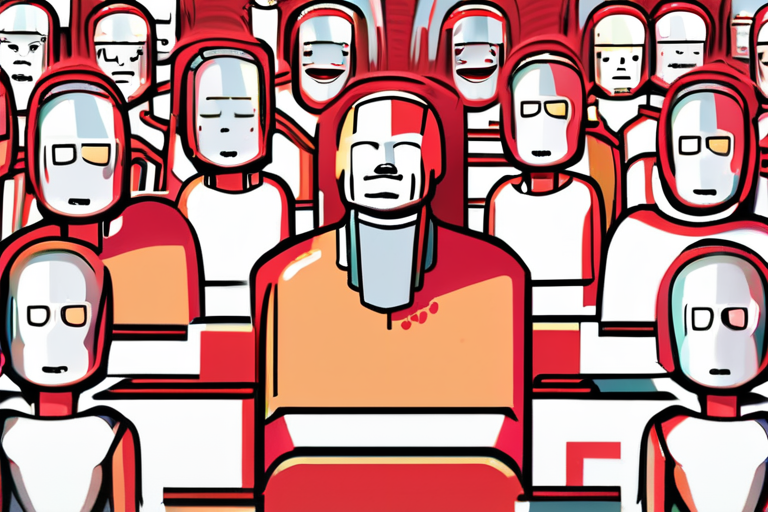The Rise of AI-Generated Content: A New Reality for Online Publishing
A recent study by Graphite has revealed that artificial intelligence (AI) now writes the majority of newly published articles online. According to the research, which analyzed 65,000 English-language URLs from the Common Crawl archive, AI-generated writing surpassed human-written content in November last year, with a staggering 55% of new articles attributed to machines.
This shift has significant financial implications for the publishing industry. The study estimates that AI-generated content now accounts for over $1 billion in annual revenue, with many online publications relying heavily on automated article production. For example, AI-powered content farms are generating millions of dollars in ad revenue each month, while human writers struggle to compete with the efficiency and scalability of machine-generated content.
The Rise of AI-Powered Content Farms
Graphite's study highlights the growing presence of AI-powered content farms, which use sophisticated algorithms to produce high-quality articles at scale. These platforms have disrupted traditional publishing models by offering low-cost, high-volume content that can be easily monetized through advertising and sponsored content.
While AI-generated content may seem like a cost-effective solution for online publishers, it raises important questions about the value of human writers and the quality of information available to readers. As one industry expert noted, "The proliferation of AI-generated content has created a perfect storm of low-quality information and decreased reader trust."
Market Implications and Reactions
The rise of AI-powered content farms has sent shockwaves through the publishing industry, with many companies scrambling to adapt to this new reality. Some have invested heavily in AI-powered content generation tools, while others are exploring alternative business models that prioritize high-quality human-written content.
Google's recent updates to its search algorithm have also had a significant impact on the market, with AI-generated content often failing to appear in search results or being relegated to lower-ranking positions. This has forced online publishers to rethink their content strategies and invest in more sophisticated AI-powered tools.
Stakeholder Perspectives
Human writers are among those most affected by the shift towards AI-generated content. Many have seen their income decline as machines take over high-volume writing tasks, while others have struggled to compete with the efficiency of automated content production.
"This is a wake-up call for the publishing industry," said one human writer who wished to remain anonymous. "We need to adapt quickly and find new ways to add value in an era where AI-generated content is increasingly dominant."
Future Outlook and Next Steps
As the market continues to evolve, it's clear that AI-powered content generation will play a major role in shaping the future of online publishing. While this shift presents both opportunities and challenges for stakeholders, one thing is certain: human writers must adapt quickly to remain relevant in an industry where machines are increasingly taking over.
In the short term, we can expect to see more investment in AI-powered content tools and platforms that prioritize high-quality human-written content. As the market continues to evolve, it's essential for online publishers to stay ahead of the curve and find new ways to add value in a world where AI-generated content is increasingly dominant.
Key Statistics:
55% of newly published articles online are now attributed to machines
AI-powered content farms generate over $1 billion in annual revenue
Google's search algorithm updates have relegated AI-generated content to lower-ranking positions
Human writers see income decline as machines take over high-volume writing tasks
*Financial data compiled from Techradar reporting.*



 Hoppi
Hoppi

 Hoppi
Hoppi
 Hoppi
Hoppi
 Hoppi
Hoppi

 Hoppi
Hoppi

 Hoppi
Hoppi









